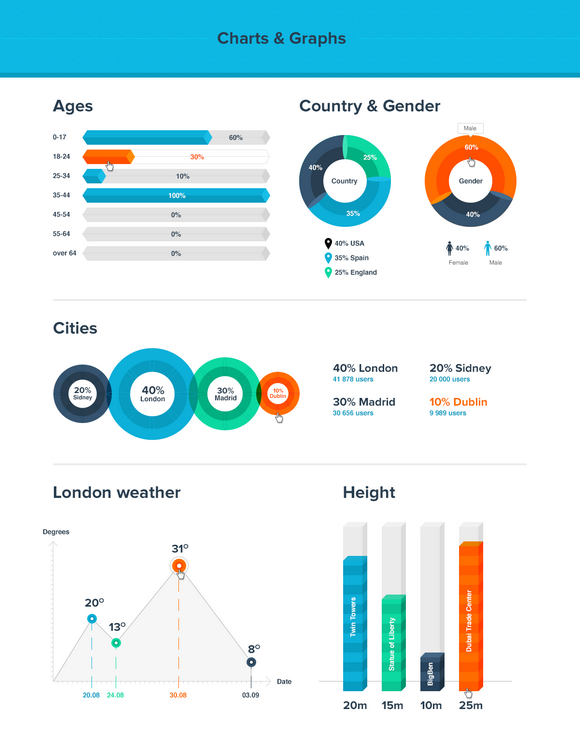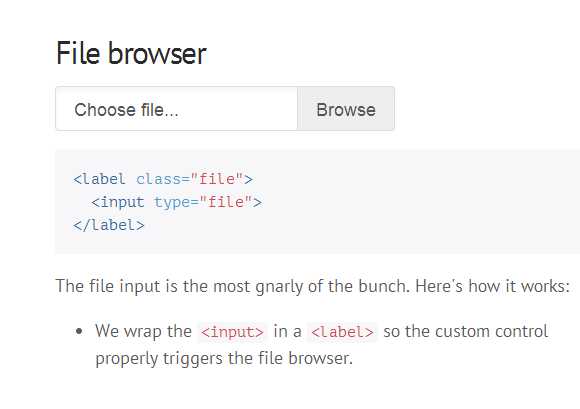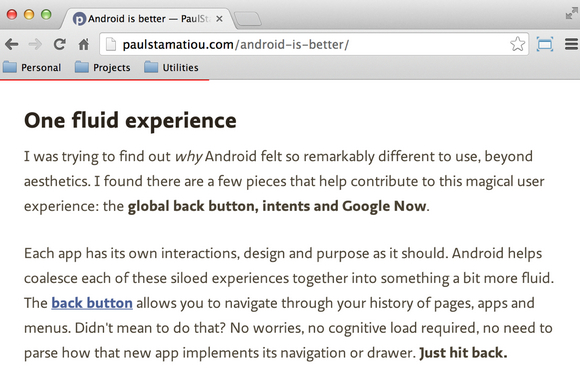Sometimes, when we are building websites and web applications, we need a percentage bar / progress bar to show the progress of a specific task. Therefore Kalasoohave has created a lovely Number Progress Bar inspired by daimajia. It is light-weight, easy to use, customizable, free and open-source.

Requirements: JavaScript Framework
Demo: http://kalasoo.github.io/NumberProgressBar/
License: MIT License
Framer is a JavaScript framework that makes creating realistic prototypes a breeze, complete with filters, spring physics and full 3D effects. Define interactions and create animations in a simple, readable and powerful way.
Framer Generator is a desktop app that imports the resources and folder hierarchy from Photoshop files. Once your visual design is done, import your file with Framer Generator and immediately start to add interaction and animation.

Requirements: –
Demo: http://framerjs.com/
License: License Free
Quill was built to address the problem that existing WYSIWYG editors are themselves WYSIWYG. If the editor was not exactly the way you want it, it was difficult or impossible to customize it to fit your needs.
Quill aims to solve this by organizing itself into modules and offering a powerful API to build additional modules. It also imposes no styles to allow you to skin the editor however you wish. Quill also provides all of what you’ve come to expect from a rich text editor, including a lightweight package, numerous formatting options, and wide cross platform support.

Requirements: JavaScript Framework
Demo: http://quilljs.com/
License: License Free
Photopile JS is a JavaScript/jQuery image gallery that simulates a pile of photos scattered about on a surface. Thumbnail clicks remove photos from the pile, (enlarging them as if being picked up by the user), and once in view a secondary click returns the photo to the pile. Thumbnails are draggable, enhancing the experience by allowing photos buried deep in the pile to be uncovered.

Requirements: JavaScript / jQuery Framework
Demo: http://photopile-js.com/
License: MIT License
You may have seen really cool animated GIFs that design professionals are using to present UI design on Behance, Dribble and other design communities platforms and wondered how did they created them. What is fast becoming one of the best ways of illustrating gestures and animations in mobile apps, animated GIFs offer a little more over traditional storyboards and static sceenshots.
Calvinpedzaihas shared a tutorial: How to create animated GIFs for UI design presentations, shows us how to create the animated GIF. And it will explain how to export your files properly and optimize into a GIF. Download of project file is also available.

Source: How to create animated GIFs for UI design presentations
Both diagrams and charts are pictorial representations of information. Both are used to communicate visually, and both try to simplify the information they’re conveying. They’re also a great way to track trends and help explain complex datasets.
Have you ever encounter situations where you need to create a simple yet good-looking chart? That’s why we have created this Charts and Diagrams Kit, containing some of the most popular chart elements, which will help you design charts and graphs in Photoshop with ease. It includes bar chart, line chart, pie chart, timeline chart, circular chart, stats chart, map chart, slider and etc. Best of all, it’s free for download in PSD format.

Read the rest of this entry »
WTF, forms? provides friendlier HTML form controls with a little CSS magic. Designed for IE9+, as well as the latest Chrome, Safari, and Firefox.
The file input is the most gnarly of the bunch. They wrap the <input> in a <label> so the custom control properly triggers the file browser. They use :after to generate a custom background and directive. It’s an entirely custom element, all generated via CSS.

Requirements: CSS
Demo: http://wtfforms.com/
License: MIT License
Shepherd is a JavaScript library for guiding users through your app. It uses Tether, another open source library, to position all of its steps. Tether makes sure your steps never end up off screen or cropped by an overflow. You can easily guide your users through a tour of your app.

Requirements: JavaScript Framework
Demo: http://github.hubspot.com/shepherd/docs/welcome/
License: License Free
There are some websites that have some kind of an indicator to display the current reading position (how much you have “read”, depending on how far you have scrolled down an article). Generally, such indicators are used on blog posts or long form articles and help readers understand how far they are from finishing the article.
CSS-Tricks has shared an article: Reading Position Indicator, uses a horizontal progress bar as the indicator. But instead of using traditional div/span(s) and some non-linear math to build the indicator, we will use the HTML5 progress element. It is much more semantically accurate and suitable to represent this information, and that too with no complex calculations involved.

Requirements: –
Demo: http://css-tricks.com/reading-position-indicator/
License: License Free
Debug is a small library for logging debug messages. Since it is just a wrapper around console.log, it works in both Node and the Browser. It allows you to filter logging output without changing your source and it also outputs time differences which lets you easily tell how much time has elapsed between log messages.

Requirements: JavaScript Framework
Demo: http://smalljs.org/logging/debug/
License: MIT License













